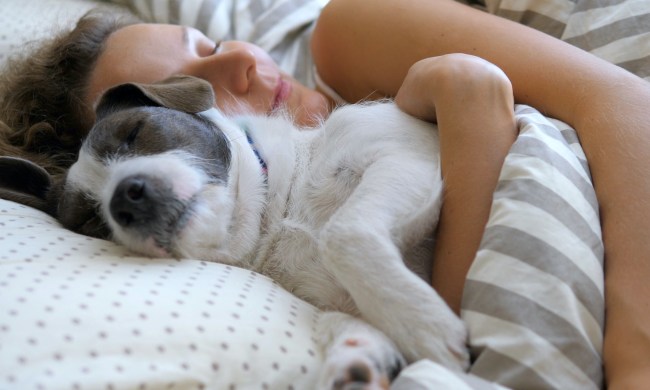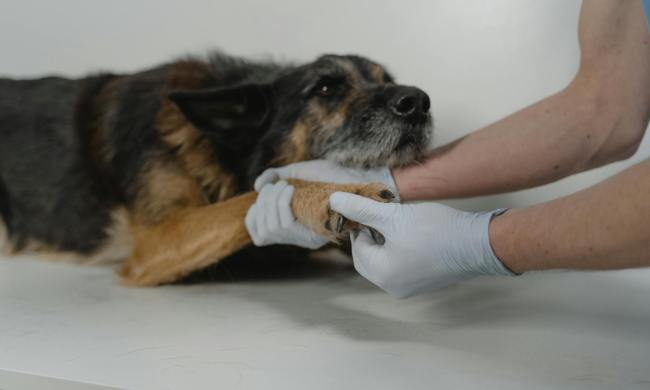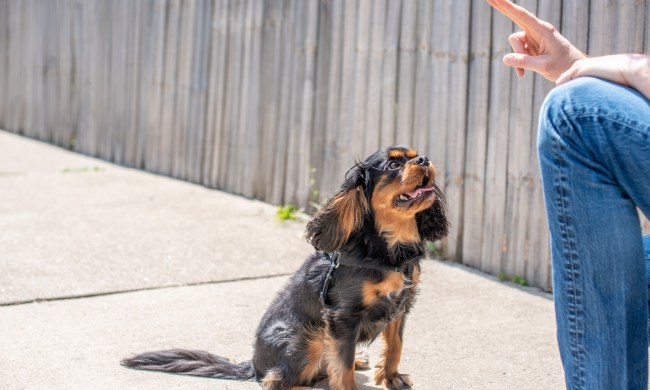Not only can dog aggression give a pup a bad rep, but it can also be tricky for the owners. What’s really a fear or stress response can look a lot like meanness, which no one likes to deal with, but it can be even worse when you don’t know how to help your beloved fur baby. Distractions can help every now and then, but nothing seems to get rid of the issue.
Fortunately, you can learn how to train an aggressive dog. It may not be quick or easy, but it will truly change the way they feel about their triggers, whatever they may be.
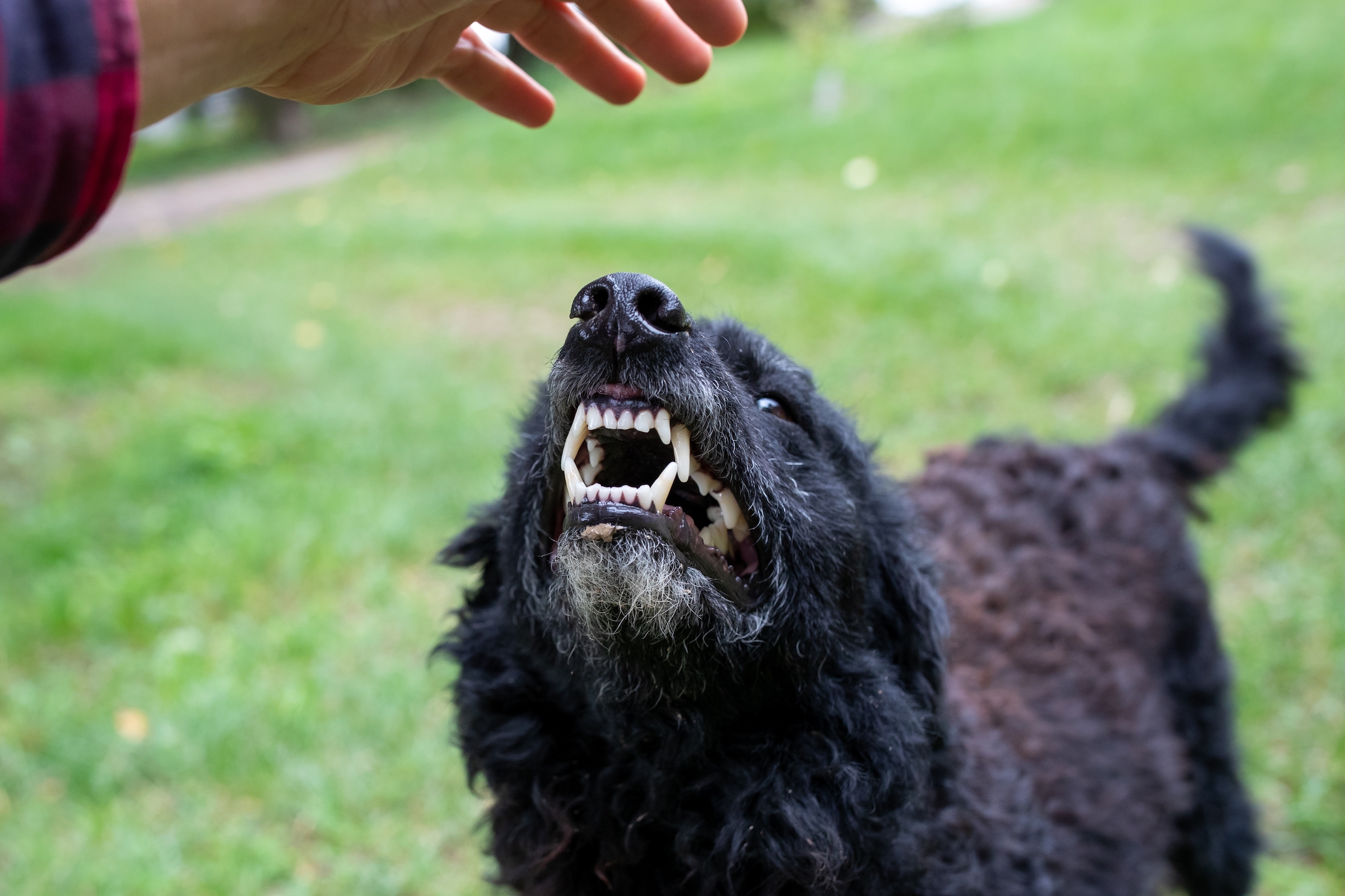
Can an aggressive dog be cured?
Canine aggression can be difficult to understand, but it’s important that you know it’s not an issue of disobedience. Aggressive reactions are often a response to something in the dog’s environment, whether in the present or the past, that elicits a surge of strong feelings. They are not trying to be mean, but these fear or frustration reactions are still not appropriate in the vast majority of cases.
“It’s important to keep in mind that there is no such thing as a cure for aggression,” notes Dr. Jill Sackman. “Aggressive behaviors are managed and reduced through proper treatment with a veterinary behavioral professional.” So, while aggression won’t just go away with a special pill or diet, it can be improved over time with practice, patience, and love.

Is it too late to train an aggressive dog?
It’s never too late to teach an old dog new tricks, and the same can be said of aggression. A pup of any age is capable of overcoming unwanted behaviors, but you will certainly have an easier time when those behaviors are not deeply ingrained in their minds. Because of this, Hill’s Pet and many other canine professionals highly recommend taking action at the first sign of aggression.
Stopping your dog’s aggressive behaviors may sound daunting — and we don’t blame you for feeling that way. If you don’t feel confident at any stage of this process, don’t hesitate to ask for the help of a veterinarian or dog behavior specialist. Even a trainer will have some tips, tricks, and knowledge to help your training make a difference. Remember, safety always comes first.
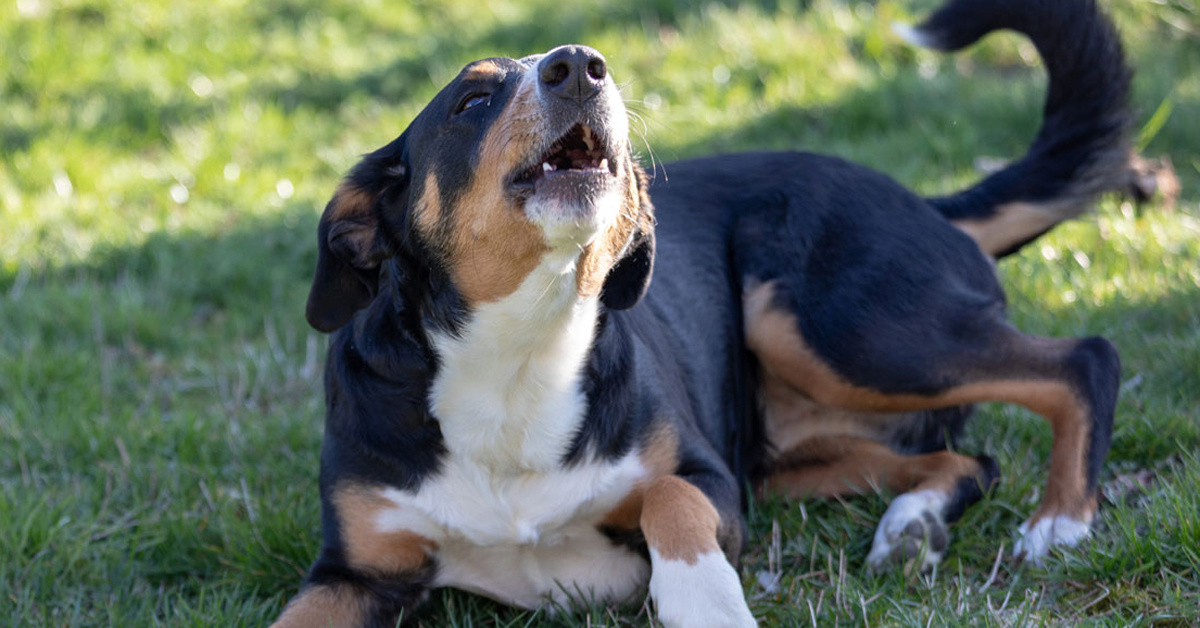
How do I discipline an aggressive dog?
When you witness your pet being unmannerly, there are a number of strategies you can take to reduce the chance of this behavior repeating itself. These are technically forms of punishment since you’re aiming to discourage a behavior, though the word “punishment” may sound a bit harsher than these redirective strategies actually are.
Step 1: Throughout this process--and for their whole lives--you should ensure that your dog has access to chew toys, space to run, and other tools to help release pent-up energy. That alone can make a difference for your pup.
Step 2: Debra Horwitz, DVM, DACVB, and Gary Landsberg, DVM, DACVB, DECAWBM remind pet parents that corrections must be given as soon as the unwanted behavior occurs. If not, your dog may not understand what you’re reacting to.
Step 3: To interrupt an aggressive behavior, you can try a number of tools including sound (a simple 'no' can go a long way) or redirection.
Be very careful not to make your pet feel frightened in any way, as this can manifest as further aggression or even a fear of their owner, according to Horwitz and Landsberg. This veterinary team also reminds readers that discipline may discourage the behavior from repeating, but it does not replace training, which can eradicate the behavior.

How to train an aggressive dog
Step 1: Learning how to train an aggressive dog begins with understanding their triggers.
Aggression is an emotional reaction to something in their bodies or environment, whether it’s pain, fear, or even canine boredom. You may need to take some time to watch your pet and their interactions, but trust us — it will help!
Step 2: Dr. Sackman recommends a 3-part approach to treating aggression in dogs, beginning with changing your pet’s exposure to their trigger. This step will take time--but while you work on actually desensitizing your dog to their trigger, you can also make an effort to avoid it when possible. Less stress is best!
Step 3: Since running into their trigger is inevitable, you can begin helping your dog make positive associations with it by rewarding them for acting calmly when in its presence. Over time, this can change how your pup feels about their trigger, possibly eradicating the issue altogether.
Though training can be a great way to change a dog’s aggressive behavior, Dr. Sackman acknowledges that many pets benefit from medication as well. If you think your fur baby may fall into this category, it never hurts to ask your veterinarian for their opinion. They may have other ideas to help your pup react calmly, so don’t wait around!


